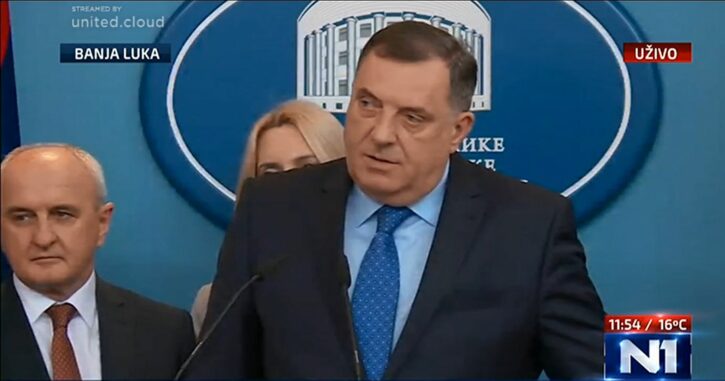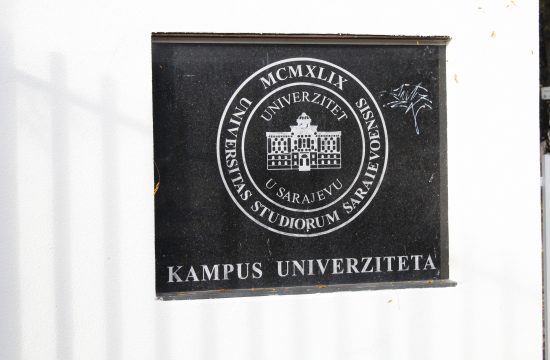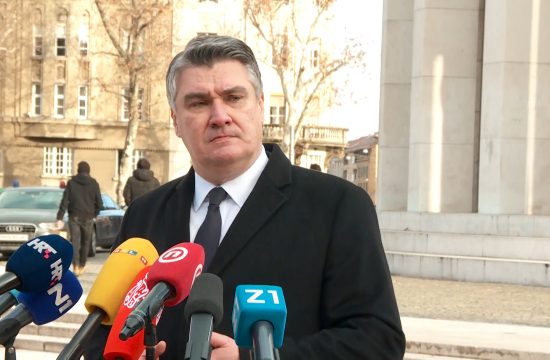
Bosnia has finalised two of three tasks that the European Union (EU) marked as important for the country at this moment, Presidency Chairman Milorad Dodik confirmed in a press conference on Monday.
In the meetings that Bosnian top officials recently held with the EU representatives, Dodik said, Bosnia was set three important tasks, of which two have been finalised.
Those are the issue of roaming fees for mobile phone services in the region, the certification of Bosnia's high education institutions and post-election formation of the state government, formally known as the Council of Ministers.
“We finished the matters of roaming and accreditation, while the issue of Council of Ministers still remains. We're having a meeting in Sarajevo today, I think we have a final statement regarding the government formation,” said Dodik, following a meeting with representatives of Republika Srpska (RS), Bosnia's semi-autonomous entity he represents at the state level.
According to him, the Council of Ministers Chairman-designate may be appointed within two or three days.
The leaders of three main ethnic parties in Bosnia who won the October 2018 election met in early March to try to resolve a deadlock and finally form a new government. Dodik then assessed that the situation was developing “smoothly” and that the job might be done by the end of the month.
Two other stakeholders in these talks are Bakir Izetbegovic, the leader of the strongest Bosniak Party, SDA, and Dragan Covic, the leader of the winner party among the ethnic Croats, HDZ BiH. They both come from Bosnia's second semi-autonomous region, the Federation (FBiH).
EU has been urging Bosnia to speed up the government formation following the 2018 election so that the country can continue implementing essential reforms on its path to the EU membership.




